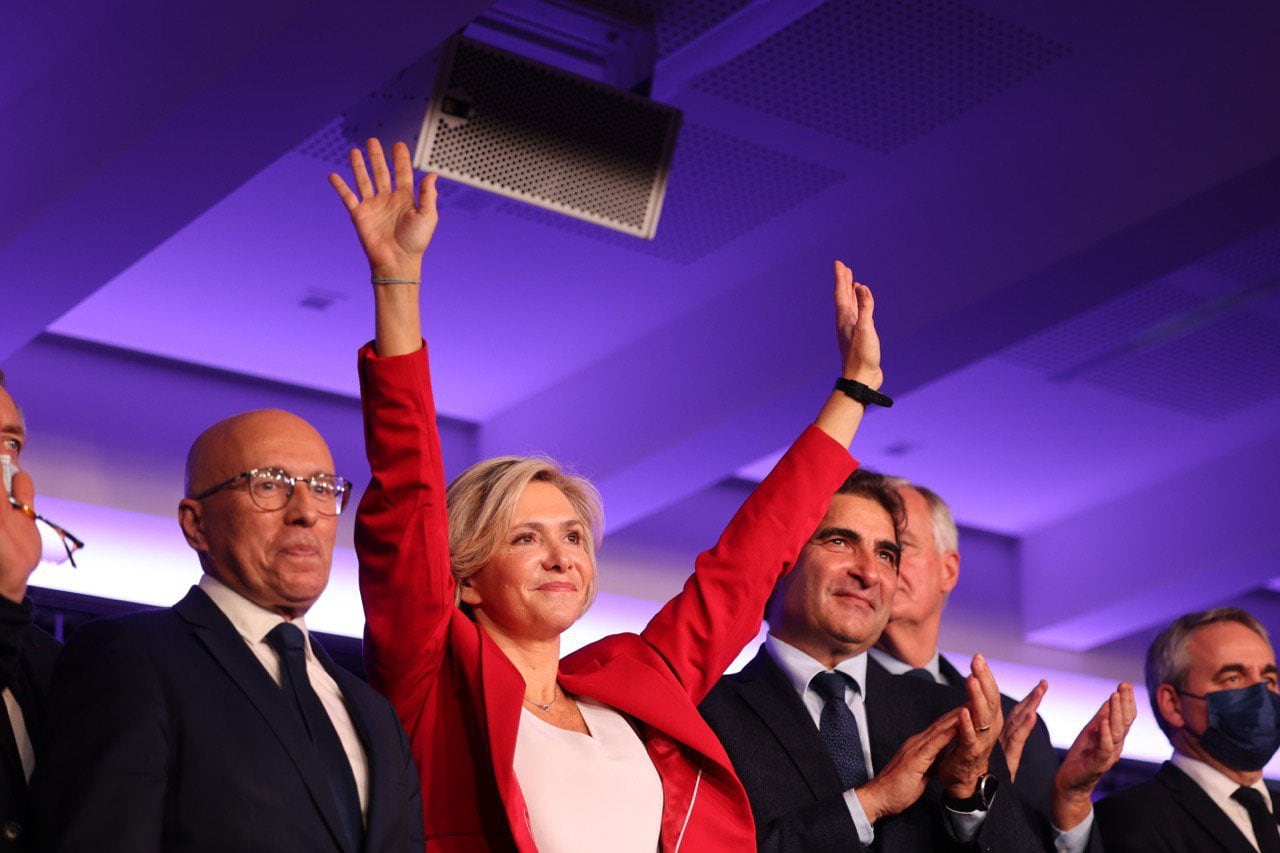
Valérie Pécresse has been nominated as the candidate of the Les Républicains party for the French spring 2022 presidential election. She won against her competitor Eric Ciotti with almost 61% of the votes. This nomination makes her the first woman to represent the right-wing government party in this election.
Valérie Pécresse already has a very long political career behind her. She is the perfect embodiment of the classic French political elite and as such often criticized as “the product of the system.” She was born in Neuilly-sur-Seine and grew up in the very privileged environment of western Paris. She graduated from the prestigious HEC business school in 1988, then from the École Nationale d’Administration in 1992. Her brilliant performance there allowed her to enter the Council of State.
In the late 1990s, she chose to support the RPR (Rassemblement Pour la République), which was the main right-wing party (and the ancestor of Les Républicains) and former president Jacques Chirac. At the same time, she had also been approached by the Socialist Party teams with Lionel Jospin. Pécresse’s moderate profile made her attractive to both the Right and the Left. In 2002, she became a Member of the National Assembly for Yvelines, a prosperous suburb of Paris. She was seen as a rising star in her party, with a bright and promising profile.
In 2007, with the victory of Nicolas Sarkozy in the presidential election, Valérie Pécresse was appointed Minister of Higher Education and Research in the first government of François Fillon. She was responsible for presenting the law granting greater autonomy to the French university to the National Assembly, but the reform remained incomplete and unsatisfactory. Nevertheless, it allowed Nicolas Sarkozy to tout it as a success of his presidency.
She gradually established herself as a key figure in the Ile-de-France region (which includes Paris) and won the regional elections in 2015. Today she is still at the head of the region, where she frequently opposes the policies of Paris Mayor Anne Hidalgo.
Her political stances are often criticized for being opportunistic with many ideological reversals. Pécresse sometimes chooses to take conservative positions: she has thus managed family policy issues on several occasions and she participated in the demonstrations against the Taubira Law imposing gay marriage in 2013. But she has repeatedly reversed herself on these issues and now believes that gay marriage is an achievement that should not be questioned. In the Ile-de-France region, she has to be careful not to alienate some of her supporters in the west of Paris who are very sensitive to these issues, as they have criticized her overly favorable management of militant LGBT associations, and for her political subsidies to the Solidays festival to fight AIDS.
Her reversals became clear at the time of the 2017 presidential election: she began with supporting François Fillon, then Alain Juppé, before returning to François Fillon. At the time of the 2021 regional elections, her list deliberately sidelined the elected officials of the Conservative Movement. They vigorously criticized her in the press for her lack of loyalty.
Anxious to appear as a centrist character, she left Les Républicains in June 2019 after the European elections, and created her own formation, Soyons libres! (Let’s be free!)—a way for her to criticize the right-wing drift of the party.
In 2021, Pécresse announced her desire to participate in the presidential race through a primary within the Républicains, which forced her to take back her party card. During the primary campaign, she once again played on all fronts. She presented herself as a woman de la droite et du centre (of the Right and of the Center), but still allowed herself to make vigorous statements on immigration, proposing for example quotas or including immigration control in the constitution.
Pécresse’s victory was unexpected, as the president of the Hauts-de-France region, Xavier Bertrand, was considered the favorite. Her profile contrasts with that of her competitor Eric Ciotti who—unlike Pécresse—played the card of a very right-wing speech during the primary campaign. The question arises of their relationship for the rest of the presidential campaign: Valérie Pécresse began by explaining that she would not take into account the proposals of Eric Ciotti in her program, before moderating her speech and seeking appeasement.
Valérie Pécresse finds herself in a difficult position: on the one hand, she has to appear as an opponent to Emmanuel Macron, to whom she is ideologically close; on the other hand, she must resist the pressure of Éric Zemmour on her right, who will attract all the Républicain voters who are turned off by her far-too-centrist profile. Within hours of Pécresse’s nomination, the Conservative Movement—despite being associated with the Républicains—announced it would support Éric Zemmour’s campaign.
